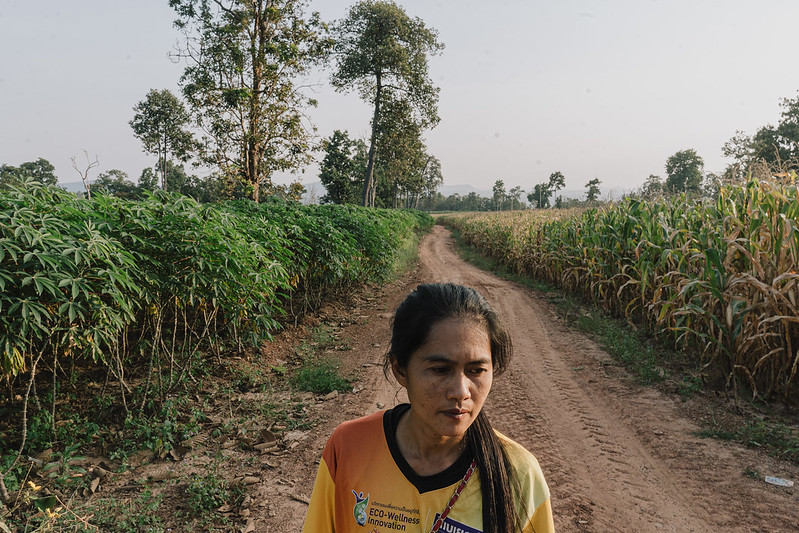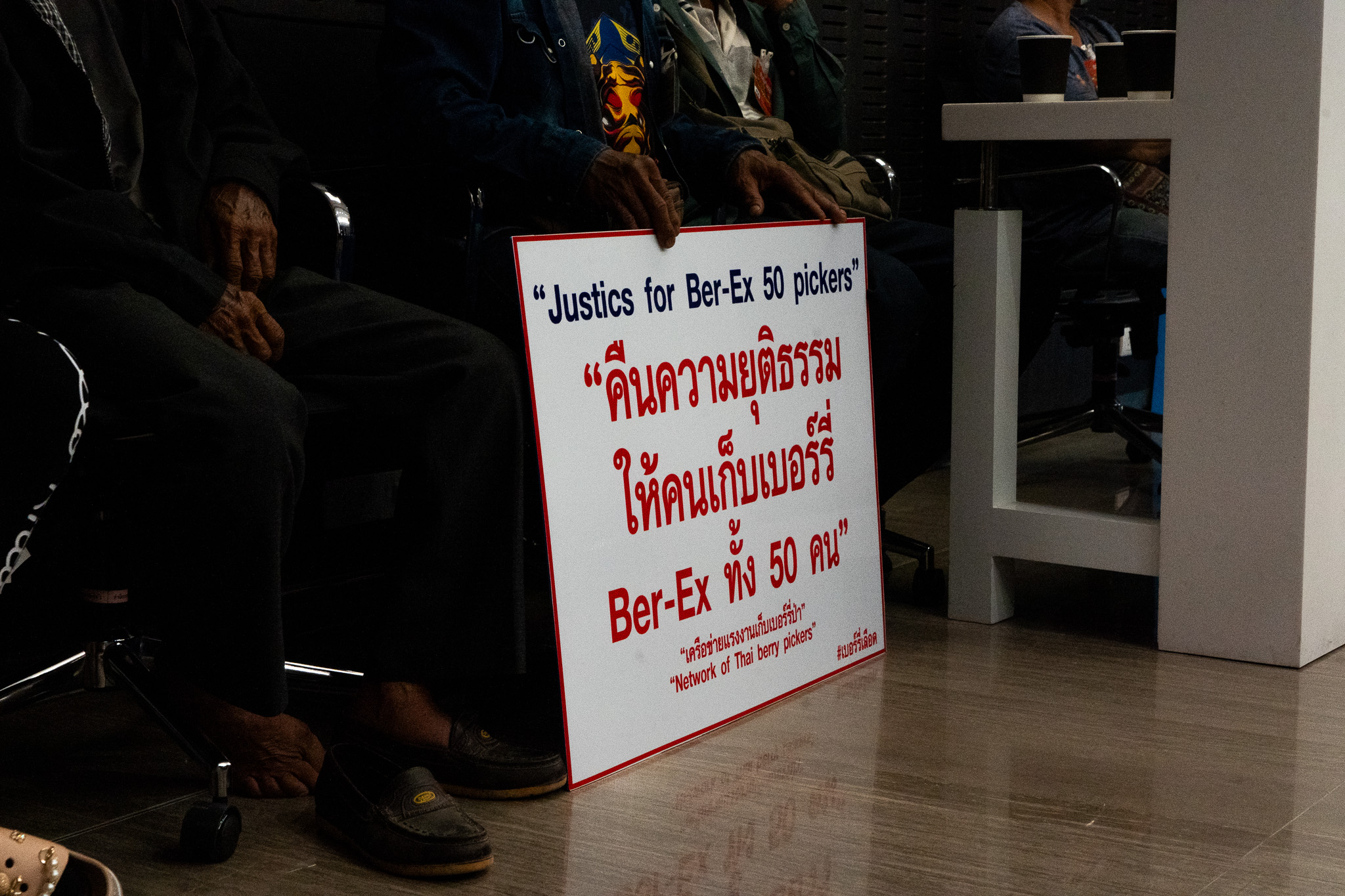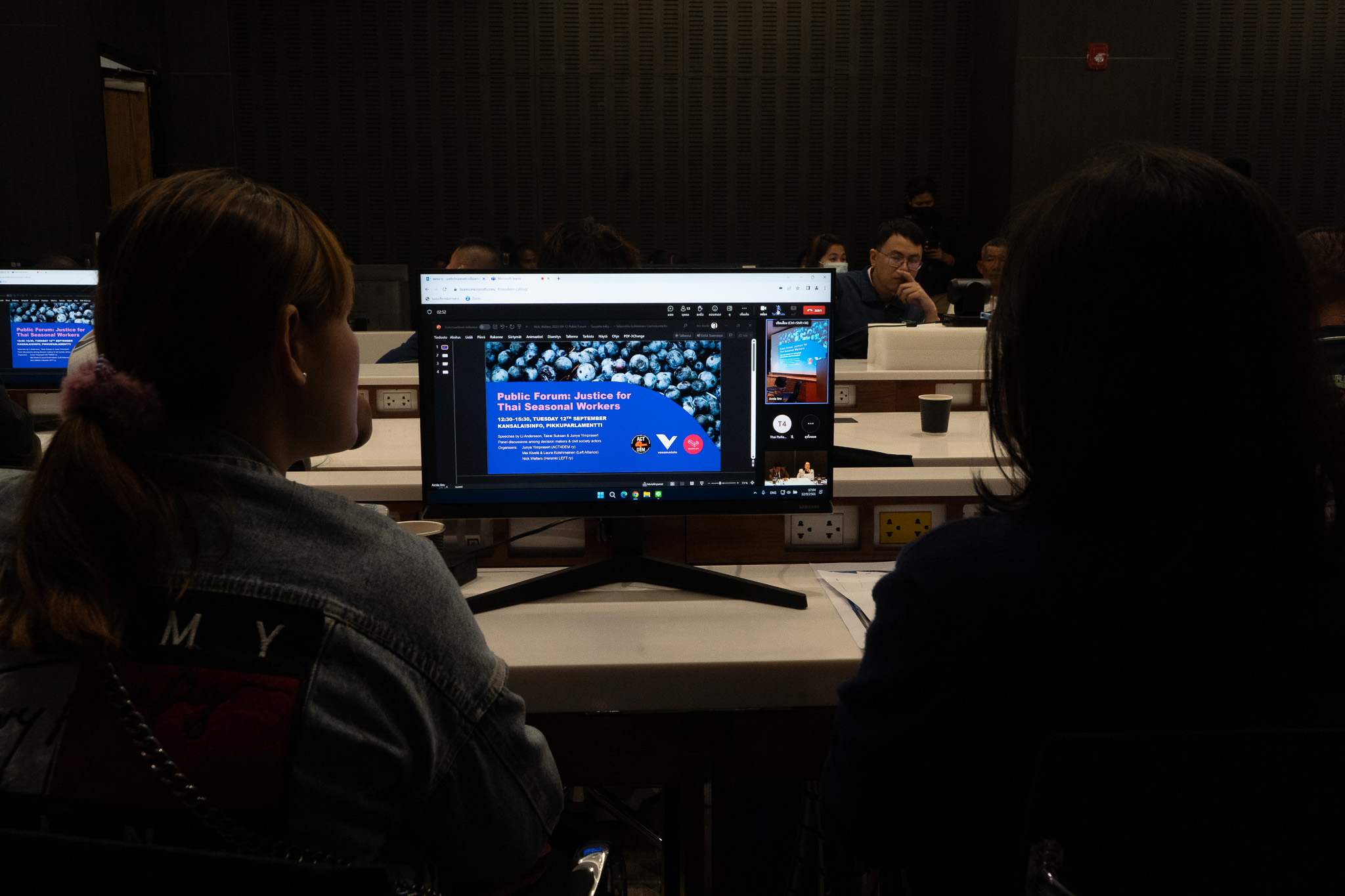UDON THANI – Pollution caused by two rubber factories has been bringing agony to residents of Udon Thani’s Nong Na Kham district for seven years. A local activist group achieved a temporary shutdown of the plants in 2017 but when the factories reopened, the stench and pollution returned.
Activists are now launching a new effort to shut down for good the rubber factory and its processing plant that have been affecting 12 villages.
Locals formed a regional activism network called Chia and organized a public forum last month to discuss the problems caused by the plants.

A rubber factory and its processing plant have been causing agony for residents in Udon Thani’s Nong Na Kham district for seven years. Photo by a local community research team
“Before the plants were built, villagers understood that there was going to be a glove factory and a soymilk factory and nobody was against it,” says Suphaphon Baolophet, a member of the local activist group.
In 2012, villagers were called to attend a meeting to inform them about the construction of two factories near the village. There was hope that the factories would improve the local economy and create jobs.
“At first, everyone was happy about having the factories so near to their homes,” Suphaphon says.
The two rubber factories were completed in 2013 and started operating as part of Sri Trang Agro Industry PCL and Von Bundit Company Limited (Udonthani).
But soon residents started to complain that the plants were omitting a nose-biting odor that became unbearable for many.

Suphaphon Baolophet is a member of the local activist group that has submitted several complaints to government agencies calling for a solution to the pollution caused by two rubber factories.
Stench and polluted water
“The once clean air in our community has been replaced by a stench and the factory’s wastewater that has affected our rice farms,” says Somsi Photsriphrom, a 65-year-old villager from Champa village in Nong Na Kham district.
Somsi’s family’s rice paddies were inundated with wastewater released from the rubber plants last year. Officers from Udon Thani’s environmental office tested the soil and found salt levels exceeding standard levels.
“Around three rai of our rice farm were damaged and the factory paid us about 7,000 baht in compensation. But that didn’t really cover [the damage],” Somsi says.
Residents of Nong Na Kham also complain that the water of the Huai Sok Prong creek, the area’s main water source, turned green.
“We don’t have any other choice but to use the water in Huai Sok Prong creek as a source of our tap water,” says Khomsak Chanchampa, a local villager.
“We have to send a signal to both companies that they need to be more responsible because for the past seven to eight years, we have been continuously affected. If we could sell our lands,” Khomsak worries, “we probably would have left already.”
Collecting evidence, filing complaints
They started organizing a protest group in 2014 and submitted several complaints to different agencies, including the office of Udon Thani’s governor. But nothing was done about the stench.
In 2017, the group decided to team up with the Pollution Control Department to form a community research team to study the effects of the pollution caused by the factories.
A sensory test conducted in the area surrounding the rubber plants found that the odor emitted from the ventilator of the rubber oven was higher than normal levels. The test detected an ozone level of 158 units, exceeding the standard level of 100 units. Emissions of fine dust such as PM10 and PM2.5 also exceeded safe levels.
The Pollution Control Department forwarded the test results to the Udon Thani governor in March 2017.
The Ban Nong Na Kham Health Center in Udon Thani’s Muang district studied the health impacts of the foul odor coming from the factories between August 2016 and January 2017.
“Field health check-up services found people suffering mostly from dry nostrils and throats, burning sensation in the throat, headaches, burning sensation in the eyes, and skin rashes. These conditions increase when the stench is being released from the rubber factory,” the report said.
In the report it was also noted that the stench became particularly strong during the night and particularly affected those with prolonged illnesses, the elderly, and children up to five years of age.
In response to the findings, the Udon Thani governor ordered a temporary shutdown of the two factories in April 2017. But residents say nothing changed when the plants started operating again in mid-May of that year.
“Several agencies have realized that the rubber factories are affecting the community, but there are legal loopholes that begin with the concession granting process and reach all the way to inspection procedures,” says Kiticha Thaniniam, a representative from the community research team. “Measures to hold the operator accountable are vague. The government should take this seriously.”
The protest group then took their complaints to the national level. They filed a complaint with the Office of the Prime Minister which prompted an investigation led by inspector Pong-in In-khao in August 2018.
The Office advised the companies to conduct a health check of residents living close to the plants. It also instructed the Pollution Control Department to evaluate the air quality once a year and told the local environmental office to examine the water quality in a nearby stream.
But despite these measures, the stench and the pollution from the rubber factories continued to agonize local residents.

Pramote Thanyaphuet, Udon Thani’s deputy provincial governor, listens as villagers air their grievances over the pollution caused by the rubber plants on 20 January this year. Photo by Oranuch Phonpinyo
New push against the factories
On January 20 and 21 this year, the Chia network held a public forum to discuss the problems caused by the factories and to make public policy recommendations. The event was attended by Pramote Thanyaphuet, Udon Thani’s deputy provincial governor.
“I worry for the villagers because the problem is quite big and now it is known nationally,” he said at the event.
Pramote recognized that the close proximity of the factories to people’s homes caused several problems. He added that increased production at the plants could mean the situation could get even worse.
“The truth is, people in Udon Thani don’t want the factories,” the deputy provincial governor said. “If we can’t solve the issue [of pollution], there shouldn’t be any rubber factories here.”
Reporting by Oranuch Phonpinyo. First published in Thai on February 12, 2020. Translated and edited by The Isaan Record.




